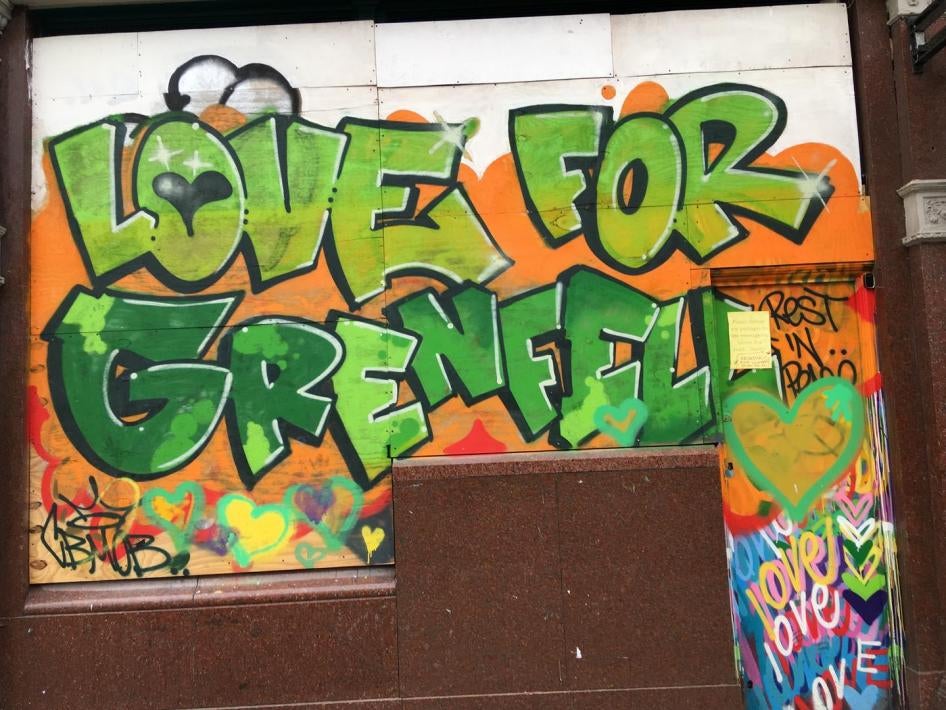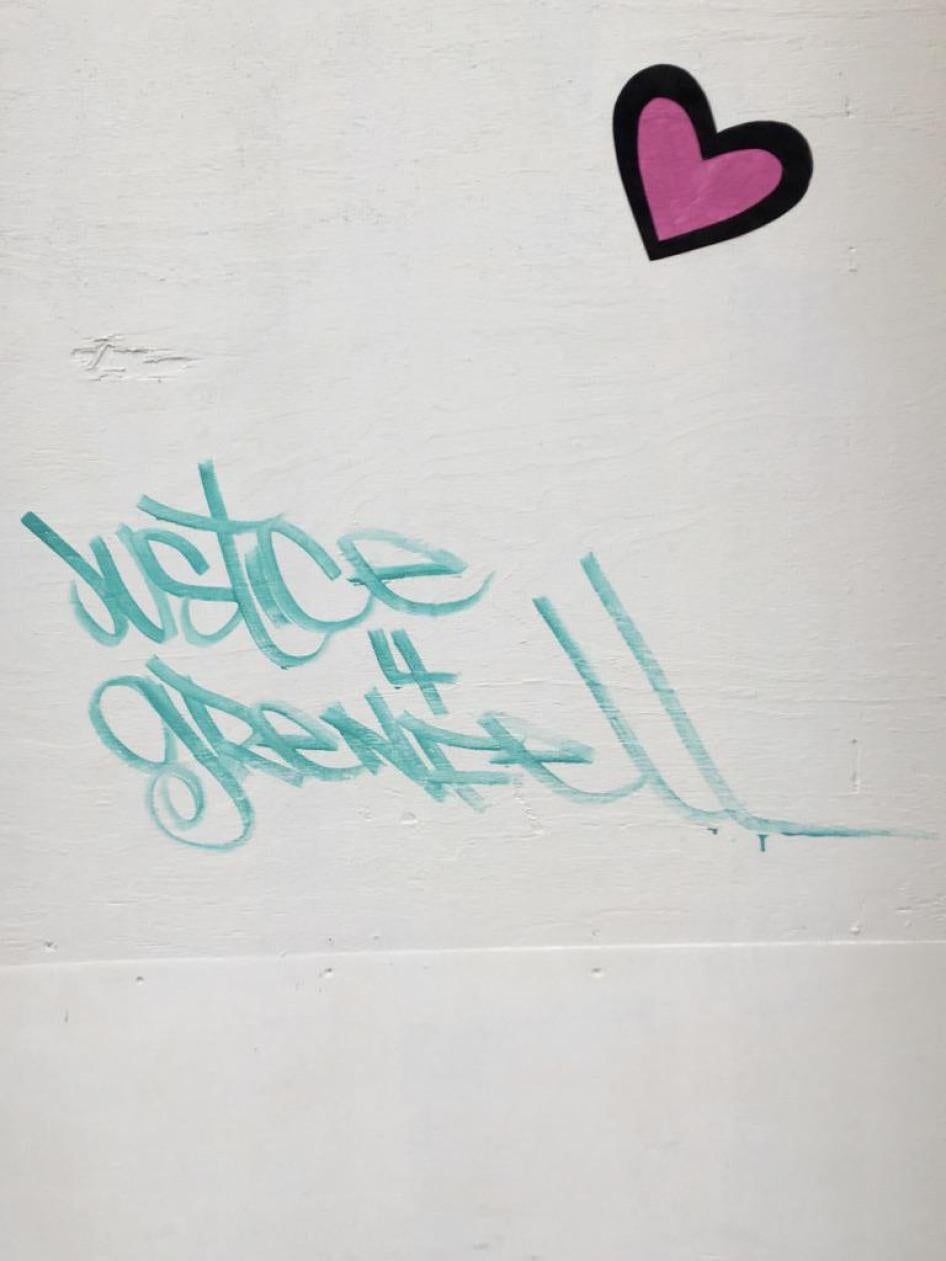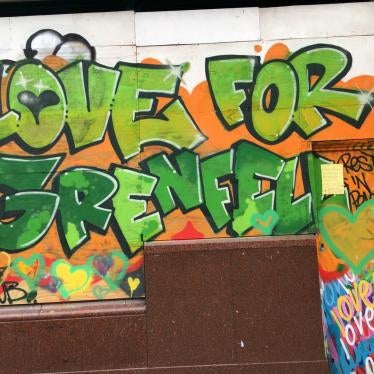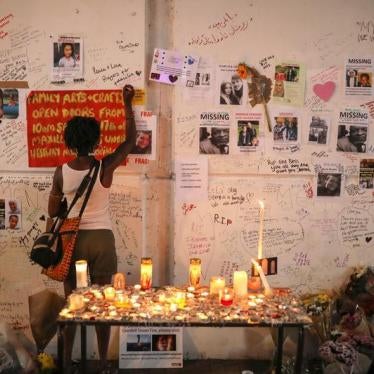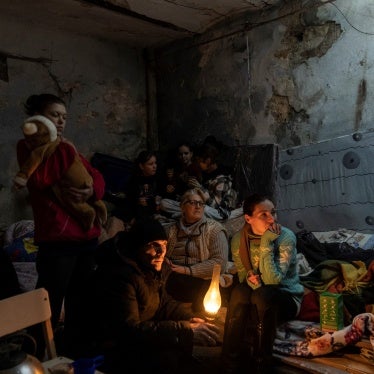A year ago, the London district of North Kensington awoke to disaster.
A horrific night-time fire had ripped through Grenfell Tower, a high-rise block containing mostly social housing. It killed 71 people and a stillborn baby. It injured seventy, left hundreds homeless, and traumatized thousands. The tragedy resonates far beyond the local area.
Justice has been a key demand for the families of those who died in the June 14 blaze. The UK government has a responsibility under human rights law to investigate deaths that may be the result of a failing by the state, such as poor fire safety rules, and ensure those affected can participate.
Yet progress has been slow. The government rightly established a public inquiry into the fire, but the inquiry has struggled to win the confidence of the community. The inquiry began formally in May with moving testimonies from the victim’s families, and reflections on the fault-lines of race and class that intersect the tragedy. London’s Metropolitan Police is carrying out a criminal investigation into the fire, including into possible individual or corporate manslaughter charges.
The right to safe housing for those affected, and others living in high-rise blocks around the UK with similar external cladding to that which encased Grenfell Tower – which has been blamed for causing the fire to spread so quickly - is another central issue. The UK government is responsible under human rights law for protecting people’s lives, including ensuring that housing is safe to live in.
A government-ordered review of fire safety rules reported last month that the system was not fit for purpose. The government has agreed to fund the removal of all existing unsafe cladding on high rise blocks across the UK. But it has yet to commit to banning flammable cladding outright.
Those who lost their homes or were displaced by the blaze also have a right to be properly rehoused. But one year on, 72 families from Grenfell tower and the adjacent block are still in emergency accommodation. While finding permanent homes for survivors is complex, it’s shocking that so many are still without a proper home.
Nothing can bring back those who died at Grenfell. But the government owes it to their memory to deliver justice and ensure that everyone’s housing is safe.

